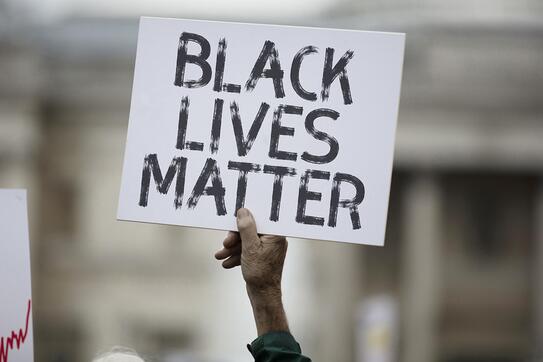The death of George Floyd has prompted weeks of protests, rallies, and vigils around the world, all initially focused on police brutality.
But it didn’t stop there. The demonstrations have also lent an urgency to centuries old discussions about racial injustice now taking place across all sectors of society.
According to Professor Adam Galinsky, a question often posed during times of protest is why did one particular event trigger robust demonstrations when another incident that might have been more extreme did not. The answer, he says, is a movement’s attainment of power and a willingness to exercise it.
“Research suggests that it is not when people are the most depressed that they fight back,” Galinsky says. “It’s when they’ve gained some level of power. That power gives people a sense of agency.”
According to Galinsky, the Management Division and the Vikram S. Pandit Professor of Business, oppressed communities gained power from self-identifying as part of a group, such as Black Lives Matter, which was born around a specific phenomenon – violent treatment by police toward Black individuals.
“One of the things we don’t think about in terms of social change is this idea of planting seeds that grow to fruition at a later point,” he says. “I think the phrase ‘Black Lives Matter’ placed seeds in the field and made people a bit more accepting of its use today.”
In a 2017 academic review, Galinsky points out that in recent years, oppressed and marginalized communities have been actively reclaiming terms and stigmatizing language to continue their path to greater power and equality.
The paper also explains the effort by some to re-appropriate the phrase “Black Lives Matter” by altering it to “all lives matter” to re-assert dominance.
“There was, as there often is, a counter reaction and people started using that diminishing phrase ‘all lives matter,’” Galinsky says. “But now people are more knowledgeable about what it means to say ‘Black Lives Matter.’”
Galinsky also puts the protests in the context of the COVID-19 pandemic, which has affected the Black and minority communities in greater numbers than affluent white communities.
“It’s a combination of these events that have been really important for collective action,” he says. “This activated people’s identity and their sense of agency.”
